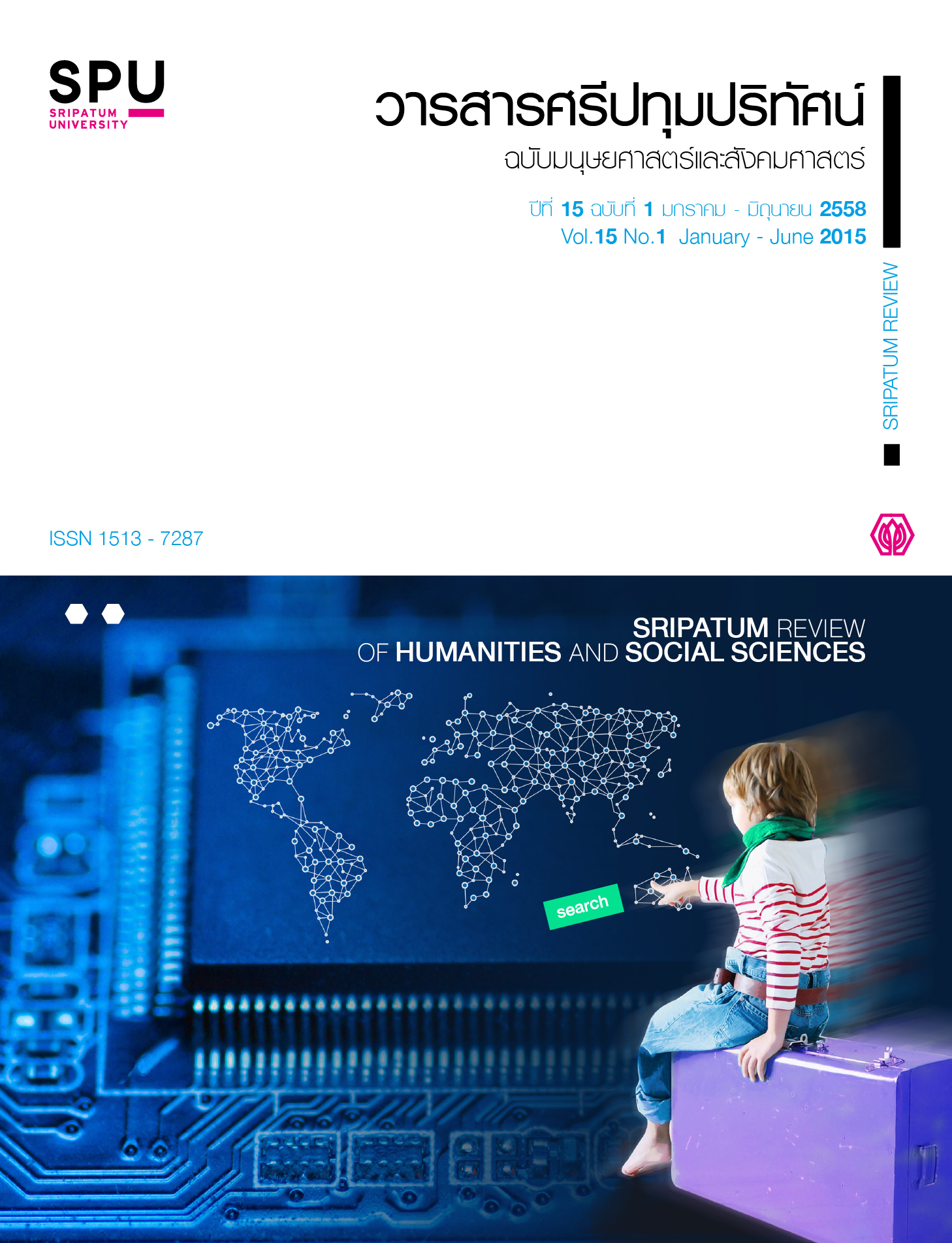DEVELOPMENT OF A TRAINING PROGRAM FOR SECURITY GUARDS TO ENHANCE THEIR BASIC COMPETENCIES IN WORK PERFORMANCE
Main Article Content
Abstract
This research aims to: (1) develop a training program for security guards, (2) enhance basic competencies in work performance of security guards, and (3) evaluate the efficiency of the training program for security guards to enhance their basic competencies in work performance, and study the security guards’ attitude toward the security guard career. This study was conducted in accordance with the four phases of research and development process, namely, Phase 1: The study of basic information; Phase 2: The development of the training program; Phase 3: The try-out of the training program; and Phase 4: The evaluation and improvement of the training program. The try-out results showed that the developed training program was efficient based on the efficiency criteria. However, the training program was improved on its contents and training activities to enable it to be more efficient for subsequent training of security guards. The employed research instruments comprised (1) an interview form, (2) a questionnaire, (3) an achievement test on knowledge concerning work performance of security guards, and (4) a scale to assess security guard’s attitude toward the security guard career. Statistics for data analysis were the percentage, mean, standard deviation, and t-test. Research findings showed that (1) the components of the developed training program were judged by the experts to be in accord and appropriate; (2) the post-training overall achievement mean score of the trainees were higher than their pre-training counterpart mean score at the .05 level of statistical significance; and (3) the post-training attitude toward the security guard career of the security guard trainees was higher than their pre-training counterpart attitude at the .05 level of statistical significance.
Article Details
1. กองบรรณาธิการสงวนสิทธิ์ในการพิจารณาและตัดสินการตีพิมพ์บทความในวารสาร
2. บทความทุกเรื่องจะได้รับการตรวจสอบทางวิชาการโดยผู้ทรงคุณวุฒิ แต่ข้อความและเนื้อหาในบทความที่ตีพิมพ์เป็นความรับผิดชอบของผู้เขียนแต่เพียงผู้เดียว มิใช่ความคิดเห็นและความรับผิดชอบของมหาวิทยาลัยศรีปทุม
3. การคัดลอกอ้างอิงต้องดำเนินการตามการปฏิบัติในหมู่นักวิชาการโดยทั่วไป และสอดคล้องกับกฎหมายที่เกี่ยวข้อง
References
กุลยา ตันติผลาชีวะ. 2543. ครูกับการศึกษา, วารสารวิชาการ ศึกษาศาสตร์.” 1(3) : 22 – 29.
เครือวัลย์ ลิ่มอภิชาติ. (กรกฎาคม 2543) “การวางแผนประสบการณ์”.วารสารการศึกษาปฐมวัย.4 (3) :22-35.
ทิศนา แขมมณี. 2545. รูปแบบการเรียนการสอนทางเลือกที่หลากหลาย. กรุงเทพฯ :ด่านสุทธาการพิมพ์.
ธำรง บัวศรี. 2532. ทฤษฎีหลักสูตร การออกแบบและการพัฒนา. กรุงเทพฯ : เอราวัณการพิมพ์.
บุญชม ศรีสะอาด. 2546. การพัฒนาหลักสูตร. กรุงเทพฯ : สุวีริยาสนาส์น.
พิสณุ ฟองศรี. 2549. การประเมินทางการศึกษา แนวคิดสูู่การปฏิบัติ. (พิมพ์ครั้งที่ 2). สํานักพิมพ์เทียมฝาการพิมพ์.
ราชบัณฑิตยสถาน. 2542. พจนานุกรม ฉบับราชบัณฑิตยสถาน พ.ศ. 2542. กรุงเทพฯ : นานมีบุ๊คส์ พลับลิเคชั่นส์.
วิชัย ดิสสระ. 2535. การพัฒนาหลักสูตรและ การสอน. พิมพ์ครั้งที่ 2. กรุงเทพมหานคร : สุวีริยาสนาส์น.
สงัด อุทรานันท์. 2532. พื้นฐานและหลักการพัฒนาหลักสูตร. กรุงเทพฯ : วงเดือนการพิมพ์.
อคัครัตน์ พูลกระจ่าง. 2550. การพัฒนาหลักสูตรฝึกอบรมหัวหน้างานเพื่อพัฒนาหลักสูตรการสอนงานปฏิบัติใน สถานประกอบการ. วิทยานิพนธ์ปรัชญาดุษฎีบัณฑิต สาขาวิชาวิจัยและพัฒนาหลักสูตร สถาบันเทคโนโลยีพระจอมเกล้าพระนครเหนือ.
Oliva, Peter F. 1992. Developing the Curriculum. 3rd ed. New York : Harper Collins Publisher.
Saylor, J. Galen, Alexander, William M. and Lewis, Arthur J. 1981. Curriculum Planning for Better Teaching And Learning. New York: Holt, Rinehart and Winston.
Taba, Hilda. 1962. Curriculum Development Theory and Practice. New York : Harcourt Brace and Word Inc.


